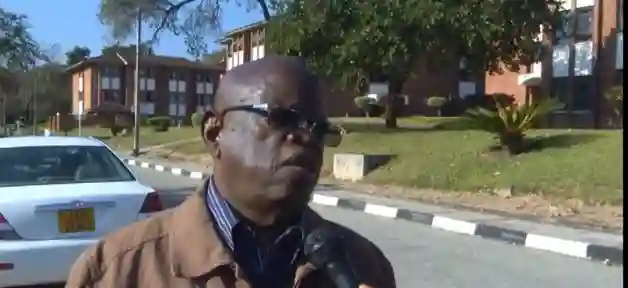The late ZANU PF Politburo member and war veteran, Colonel (Retired) Tshinga Dube, who passed away on Thursday evening after a prolonged battle with kidney failure, has been declared a national hero.
In a condolence message delivered to the Dube family on Friday by ZANU PF National Chairman Oppah Muchinguri-Kashiri, President Emmerson Mnangagwa described Colonel Dube as a dedicated freedom fighter, a loyal soldier, and a humble, hard-working politician. He said:
In recognition of his outstanding role in struggles for the Independence of Zimbabwe and that of several nations in our sub-region, and for the sterling work he diligently executed in the service of his people both before and after Independence, the ruling ZANU PF Politburo has seen it fit and proper to declare Cde Tshinga Dube a national hero so he is properly honoured and remembered, and so he is appropriately rested alongside his luminary peers.
This is the least our nation, which is forever grateful, can do to express its admiration of, and to show and express its gratitude to him.
Col Dube was born on July 3, 1941, in Fort Usher, Matobo District, Matabeleland South. He became politically active at a young age, joining the liberation movement in the 1960s.
In 1972, he trained as a guerrilla fighter in the Soviet Union and China, becoming a prominent figure in the Zimbabwe People’s Revolutionary Army (ZIPRA) during the liberation struggle.
Dube advanced through the ranks, playing a crucial role in the arms procurement department for ZIPRA, where he facilitated the shipment of weapons from supportive nations during Zimbabwe’s fight against colonialism.
Known as Cde Embassy during the liberation struggle, he was among the first guerrillas deployed to the frontlines, operating in the Tsholotsho District of Matabeleland North.
His unit laid the groundwork for the Wankie Battles, a joint operation involving ZAPU and ANC fighters that extended into Bulilima District in Matabeleland South.
As a military communications specialist, he worked closely with comrades such as Cain Mathema, Joshua Mpofu, and Bhekuzulu Khumalo.
They jointly led the department alongside ANC’s Umkhonto WeSizwe fighters, including Walter Mavuso and Jackie Modise, the wife of MK commander Joe Modise.
One notable engagement he participated in was the Madliwa battle, which lasted nearly five days along the Zambezi River Escarpment near Kariba, fought on the Zambian side. The battalion was commanded by the now Retired Major-General Stanford Khumalo, known as uMadliwa.
During the ceasefire, Dube was appointed to a committee responsible for integration, demobilisation, and the formation of the Zimbabwe National Army.
This committee was led by three members, with Dube representing ZIPRA, the late Josiah Tungamirai representing ZANLA, and General Jacobs coming from the Rhodesian Army.
Dube later became the overall commander of the signals department in the Zimbabwe National Army and was appointed a full Colonel.
He served ten years in the army before moving to the Defence Headquarters as Deputy Secretary of Research and Development.
After about three years, he became the chief executive of the Zimbabwe Defence Industries (ZDI), where he worked for 23 years.
He then transitioned into politics, serving as the Member of Parliament for Makokoba in Bulawayo for several years.
In 2015, Dube was appointed Minister of War Veterans and later authored a memoir titled “Quiet Flows the Zambezi.”
He is survived by his wife, Nomathemba Wendy Dube, as well as several children and grandchildren.
More: Pindula News

